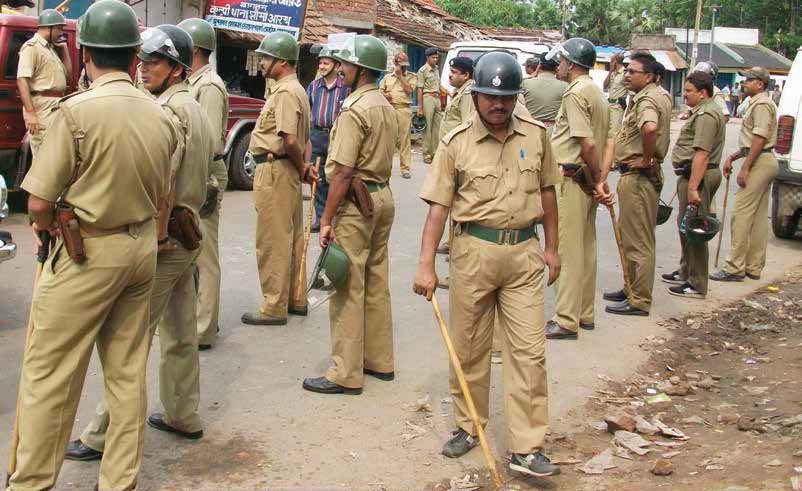This article is written by Lalit Ajmani, an Advocate & Founding Partner at Ajmani & Law Partners and Tanya Mayal, from RGNUL, Punjab.
Table of Contents
Introduction
The registration of an FIR marks the beginning of a comprehensive, and often, long criminal justice mechanism. Unlike civil cases, the criminal cases begin with the registration of FIR baring a few exceptions like private complaints of criminal defamation and others. FIR allows the police to investigate a matter and file chargesheet before the concerned magistrate. The magistrate, if satisfied with the allegations supported by the evidence depicted in the chargesheet, takes cognizance of the matter and summons the accused person(s) accordingly. Thereafter, the entire mechanism of framing of charge, appreciation of evidence, examination and cross examination of witnesses begin. Thus, FIR registration holds the paramount importance in the criminal justice process.
Despite being the fundamental step, the registration of FIR has become one of the daunting tasks for the aggrieved complainants/ victims, and filing of complaint under section 156(3) of the CrPC has become a routine matter.
In light the horrendous and seemingly impossible task of FIR registration, the article is being written highlighting the issues that the aggrieved complainants/ victims face and the rights and remedies that the law and Indian judiciary have provided.
What is an FIR
A First Information Report (FIR) is meant to record the information that is brought to the knowledge of the police. This information, whether received in writing or orally, is required to be reduced to a written report that shall be credited for setting the criminal law in motion. In case of a cognizable offence, the police is permitted to go ahead and make an arrest without a warrant and commence the investigation. On the contrary, in a non-cognizable case, the police do not have the liberty to take either of these actions without the explicit permission of the court. This position is clarified by means of Sections 154, and 155 r/w Section 2 of the CrPC.
An FIR can be lodged by any person who has the knowledge of the commission of a cognizable offence. This power extends to the victim, a witness and any person who knows of the commission of an offence, including a police officer himself.
Legal implications of FIR
Though an FIR is the first step to achieve justice via criminal mechanism, the FIR is itself not a declaration of the punishment or finality of the allegations made by a complainant/ victim.
Despite the aforesaid, people at large are apprehensive and often afraid about the registration of FIR against them. Many times, employers prefer not to hire the employees against whom an FIR is registered. Moreover, the possibility of facing a criminal trial can’t be ignored.
Lastly, the biggest consequence of FIR registration is that the FIR can only be quashed by the Hon’ble High Courts and not by Magistrates or Session Courts. In addition to this, it is a trite law that in some cases, courts often refuse to quash FIR considering the nature of the case.
Therefore, the victims/ complainants are keen to register the FIR against the accused persons either to get justice or at times to take vengeance.
Law on registration of FIR
The Code of Criminal Procedure, inter alia, deals with the registration of FIR. As stated earlier, Section 154 obligates the police to register the FIR after receiving the information, oral or written, qua commission of a cognizable offence. It is worth noting that the police officials have the right to arrest the accused without the permission of the Magistrate in cognizable cases. Moreover, the Hon’ble Supreme Court in the case of “Lalita Kumari vs. Govt of UP & Ors” laid down directions for the police officials qua registration of FIR. Further, in the case, the court stated that the police is bound to register an FIR when the information supplied to the police discloses the commission of cognizable offence(s).
Whereas in the case of non cognizable offences, the police has the same powers except the police can’t investigate the matter and arrest the accused persons without the leave of a magistrate.
Thus, it won’t be wrong to state that the registration of FIR seems more probable than in the cases of non-cognizable offences.
Problems in FIR registration
As elucidated herein above, the law articulates a smooth way for FIR registration, but the reality often mocks at the intention of the legislature.
It is not uncommon to witness that the police often refuse to register an FIR despite providing the information disclosing the cognizable offence. Many visits to SHO, Superintendent of Police often go in vain and at last, a complainant/ victim gets compelled to approach the court by paying hefty litigation fee.
Not just above, the courts due to insurmountable work load, often take months to direct the police officials to register the FIR. Moreover, the plight of the complainants/ victims can get aggravated if the Magistrate is of the opinion that the case doesn’t call for FIR registration or the complainant(s)/ victim(s) come after a long delay.
There may be many reasons which, in some cases, explain the unwillingness of a police official to record an FIR. It has been noted many times in order to maintain a statistic or show a decrease in the crime rate of their respective area, an official may discourage a person or the family of the victim to register an FIR.
The police may also be hesitant to take upon investigation into matters that have a political undercurrent. Commenting on the issue of non-registration of FIRs, former Police Commissioner of Delhi, Ved Marwah said, “You will be surprised to know that the pressure comes from higher-up, the political leadership to keep the crime statistics low. They don’t want an astronomical number of rape cases at the end of a year which will provoke the media to designate a city as the crime capital. I feel it’s a systemic problem and will only go away with police reforms coming into place. Unless we recruit the right kind of people, train them to be sensitive to people’s problems and motivate them to lodge complaints, things will not change.”
A delay in registering an FIR may also discredit the evidentiary value. Although an FIR is not always considered as a piece of substantive evidence, however in exceptional cases such as in a dying declaration, an FIR may be considered as substantial evidence which is good enough to support the order of conviction. It has thus been observed time and again by courts that an FIR should be registered soon after the crime before the informant’s memory starts to fade and to ensure that minimum time is available for tampering of facts. Hence, a delay in filing an FIR may cause an irreparable damage to the trustworthiness of the statement.
Possible ways to get an FIR registered
As often said that you can’t change the system, but you can definitely alter your stand. It’d be futile to expect that the police official may behave differently in one’s case or perform its job without any undue delay. Ergo, the solution lies in utilizing the remedies and options furnished by law.
The first thing is to approach the police officials with a written complaint disclosing the date of the offence, details of the accused and the other necessary details which the circumstances warrant. Further, the complaint must be backed up by evidence. It is often observed that the complainants/ victims fail to provide evidence at the beginning and subsequently, lose the track. It’s always beneficial to furnish the complaint in duplicate and receive the dairy no. on the duplicate of the complaint. The police are legally obligated to do it when provided with a written complaint.
Further, a complainant/ victim has a right to approach the Superintendent of Police qua registration of an FIR on the basis of the complaint already furnished to the SHO/ other concerned official.
Lastly, if the police don’t register an FIR, then the only option is to approach the magistrate under Section 200 r/w 156(3) of the CrPC providing the complaining disclosing the chain of events correctly along with the evidence. Further, it won’t be harmful if the recent case laws are cited to assist the magistrate in directing the police official.
At this point it is imperative to note that these remedies must be exhausted by the aggrieved in a chronological manner, as has been observed by the Hon’ble Supreme Court in the case of Sakiri Vasu vs. State of Uttar Pradesh & Ors, that if a person has a grievance that his FIR has not been registered by the police or proper investigation is not being done, then the remedy available to the aggrieved person is not to go to the High Court under Article 226 of the Constitution of India, but to approach the Magistrate concerned under Section 156(3) first.
The aforesaid solutions may seem fundamental in nature, but more often than not the complainants/ victims often fail to comply with the aforesaid procedure on a timely basis which often bereft them of justice.
LawSikho has created a telegram group for exchanging legal knowledge, referrals and various opportunities. You can click on this link and join:
 Serato DJ Crack 2025Serato DJ PRO Crack
Serato DJ Crack 2025Serato DJ PRO Crack











 Allow notifications
Allow notifications


